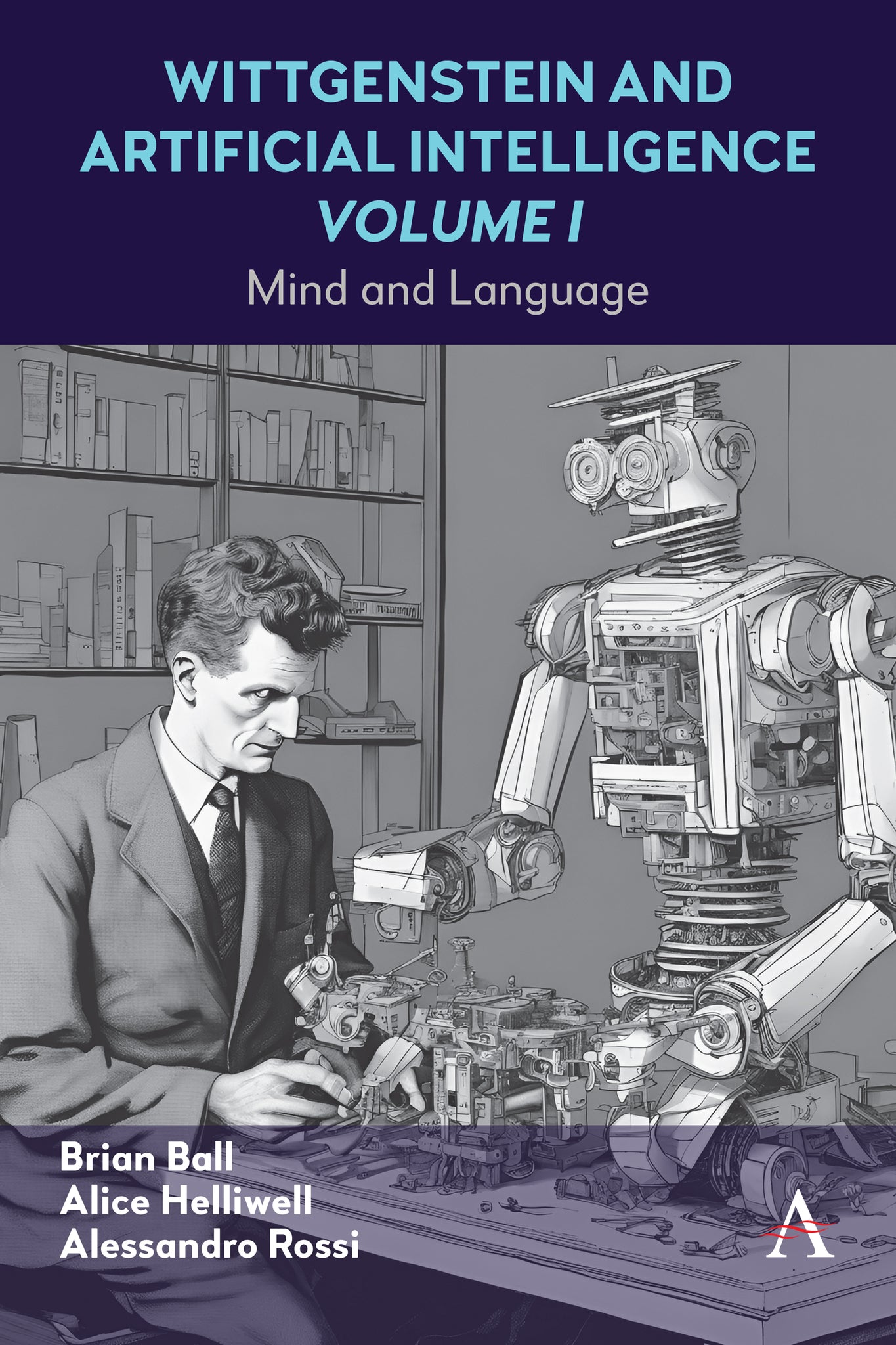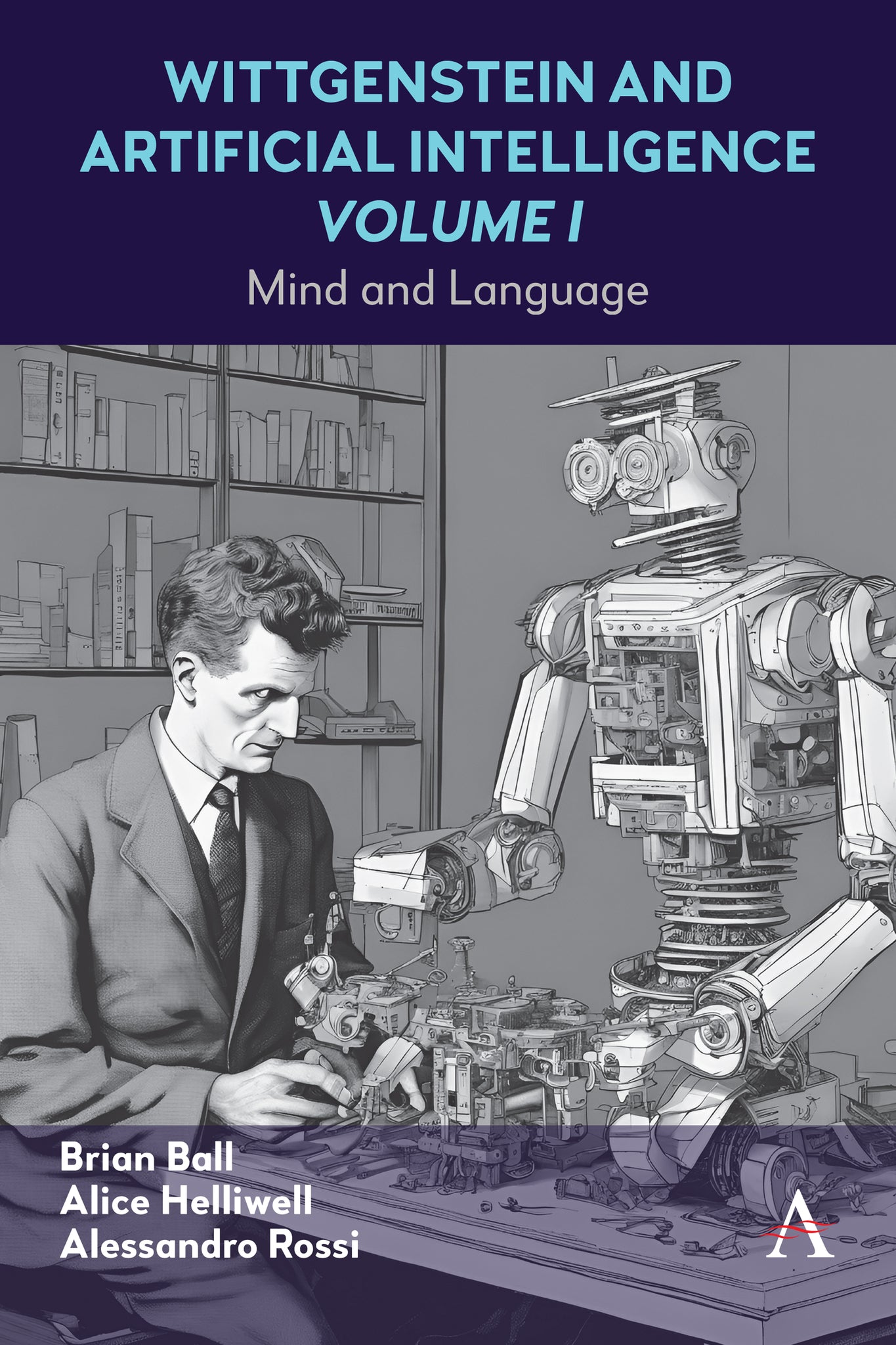We're sorry. An error has occurred
Please cancel or retry.
Wittgenstein and Artificial Intelligence, Volume I

Some error occured while loading the Quick View. Please close the Quick View and try reloading the page.
Couldn't load pickup availability
- Format:
-
10 September 2024

This collection brings together work on the relevance of Wittgenstein’s philosophy to the field of Artificial Intelligence (AI). Over two volumes, our contributors cover a wide range of topics from different disciplinary approaches. In this Volume (I), contributions are centred on two major themes in the philosophy of AI: questions of mind and language. Contributions include chapters on AI thought, intentionality, logic and language, as well as the relationship between Wittgenstein’s thought and Turing’s.

PHILOSOPHY / Mind & Body, Philosophy of mind, PHILOSOPHY / Language, COMPUTERS / Artificial Intelligence / General, PHILOSOPHY / Ethics & Moral Philosophy, LAW / Computer & Internet, Philosophy of language, Artificial intelligence (AI), Ethics and moral philosophy, Methods, theory and philosophy of law, Digital and information technologies: social and ethical aspects

Wittgenstein and AI makes for fascinating reading as it engages Wittgenstein’s enactivist philosophy to explore the conceptual and real possibilities of “thinking machines”. Wittgenstein proves an indispensable partner in our attempts to understand and develop the future interaction between humans and machines, their moral status and possible clashes with our human form of life.’ — Danièle Moyal-Sharrock, Professor of Philosophy, University of Hertfordshire; President of the British Wittgenstein Society
Introduction; Brian Ball, Alice C. Helliwell and Alessandro Rossi; Chapter 1. Wittgenstein and Turing on AI: Myth Versus Reality, Diane Proudfoot; Chapter 2. Between Wittgenstein and Turing: Enactive Embodied Thinking Machines, Tomi Kokkonen and Ilmari Hirvonen; Chapter 3. Wittgenstein, Psychological Language and AI, Arturo Vázquez Hernández; Chapter 4. The Metonymical Trap, Éloïse Boisseau; Chapter 5. The Forms of Artificially Intelligent Life: Brandom, Chomsky and Wittgenstein on the Possibility of Strong-AI, Laith Abdel-Rahman; Chapter 6. Black Boxes, Beetles and Beasts, Ian Ground; Chapter 7. Language Models and the Private Language Argument: A Wittgensteinian Guide to Machine Learning, Giovanni Galli; Chapter 8. Simplification without Falsification: The Problem of Relevance in Logic and AI, Oskari Kuusela; Chapter 9. Modelling Analogical Reasoning: One-Size-Fits-All?, Ioannis Votsis; Notes on Contributors; Index



